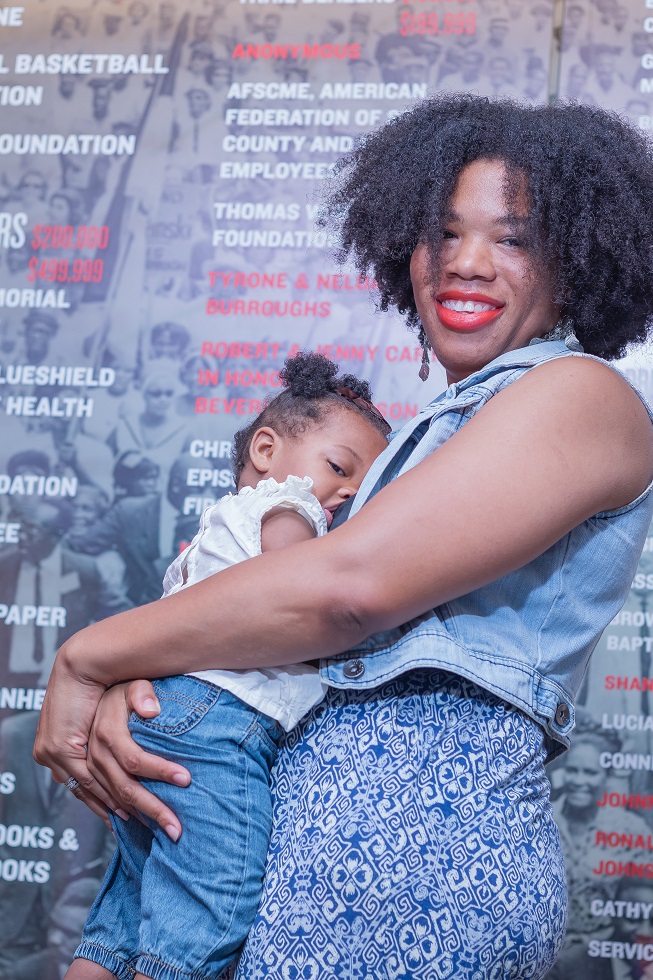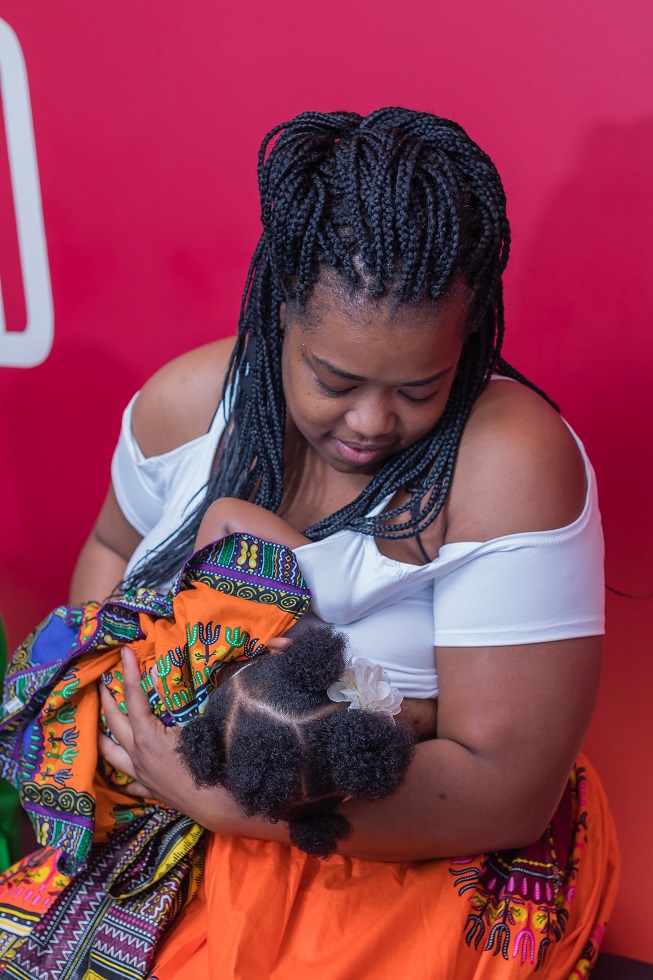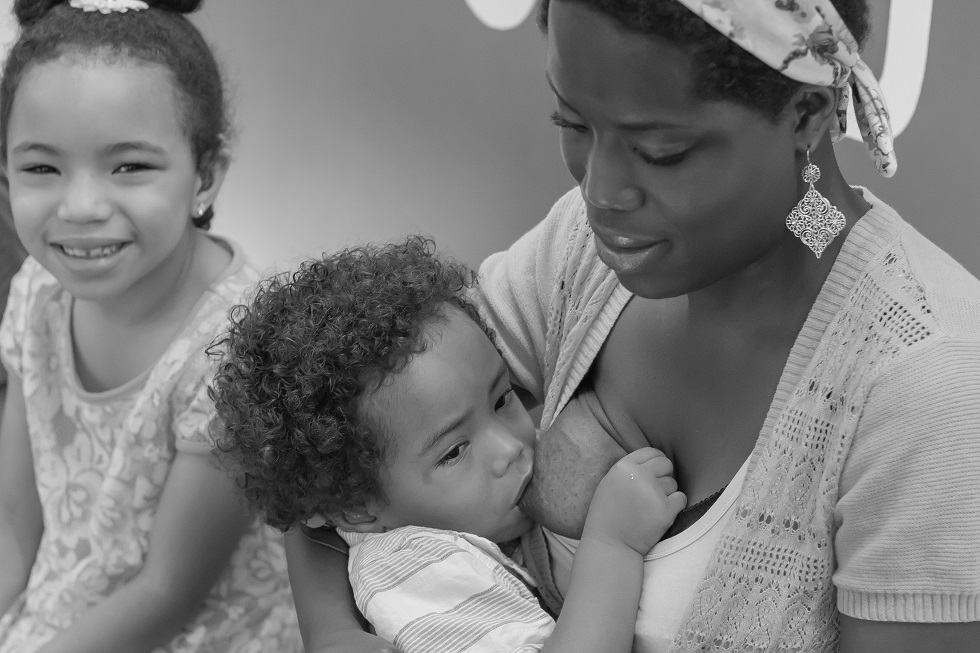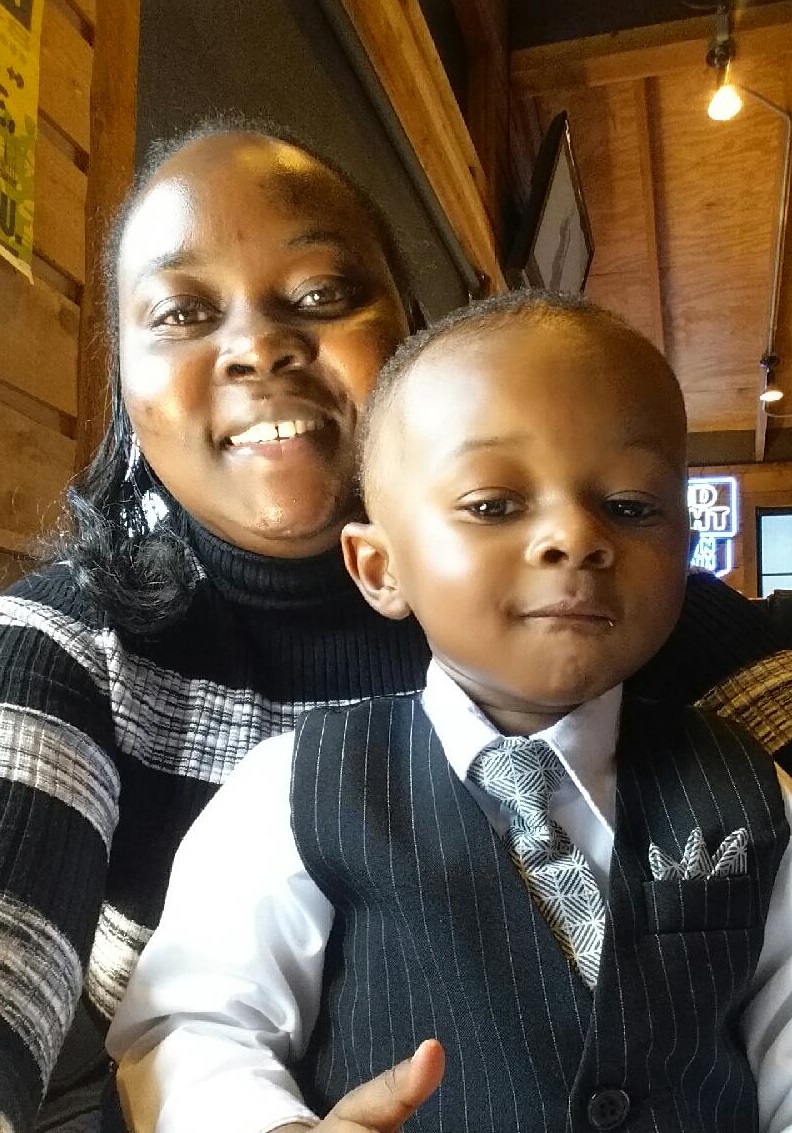Mothers of Memphis: Celebrating Breastfeeding during Black History Month
African Americans have the lowest rates of breastfeeding among all racial/ethnic groups in the United States. Yet, despite longstanding taboos, more and more black women are proudly nursing their children and helping to reclaim deep-rooted cultural norms.
In honor of Black History Month in February 2018, Baby-Friendly USA would like to highlight the work of ROSE and BSTARS by celebrating the stories of five African American mothers in Memphis, Tennessee, who are helping change this piece of black history in their community.
Kimathi Coleman

Before I had children I wasn’t sure,” she says. “My mom had problems breastfeeding me, so I thought I’m not doing that. But as soon as I got pregnant, my mommy mode kicked in and I was all enthusiastic about it.”
“Kimathi nursed her firstborn exclusively until she went back to work when the child was four months old.
“I wasn’t a great pumper, so I had to supplement when I went back to work. I still nursed her when she was with me, but I wasn’t pumping enough to send only breastmilk with her, so that was a challenge,” she says.
Her second child was “totally different.” She’s still breastfeeding at 19 months. The fact that Kimathi now stays at home during the day has been a big help. But nursing the second time around also had its challenges because her daughter had a lip and tongue tie that wasn’t revised until 4 months.
“My nipples hurt still sometimes because I think she learned a bad latch, but I’m still breastfeeding,” she proudly declares.
Kimathi delivered both children at a hospital that is actively pursuing Baby-Friendly designation and says they were very supportive of her feeding plan. Now she’s helping other mothers in her community as a counselor and as a doula. And she’s planning to become a Certified Lactation Counselor at some point in the future.
“I’m super pro-breastfeeding, if you couldn’t tell,” she proclaims.
When asked why she thinks breastfeeding rates among African American moms continue to lag behind other racial/ethnic groups in the U.S., Kimathi points to the need for more breastfeeding education to counteract the powerful influence of formula companies.
“Even if you say you’re not going to feed formula, they’ll send formula to your house, especially for people who have TennCare, the Medicaid program in Tennessee,” she says. “They send it to them without them asking for it – you know, they just kind of push it on low income families.”
Ka’Neisha Collins
Ka’Neisha is the first person in her family to breastfeed.
“Everybody else, they think it’s crazy, they think it’s taboo or something,” she says. In fact, she laughs about a time when one relative asked, “Why don’t you just give your baby regular milk?” When Ka’Neisha replied that breastmilk is regular milk, her relative merely scoffed at the idea.
But Ka’Neisha (pictured here next to the statue of Rosa Parks at the Civil Rights Museum in Memphis) says, “I always knew I would breastfeed. I knew it was natural and formula would be expensive.”
Still, she gets a lot of negative comments and people say hurtful and unflattering things.
“They ask, ‘How can you pull your breast out and put it in your baby’s mouth?’ It makes no sense to me. I don’t look at breastfeeding as sexual at all. I don’t see those bad things.”
Because her first son (Taylor, who is now 4 years old) was born via emergency c-section, Ka’Neisha didn’t get a chance to go skin-to-skin with him immediately after birth. But when he was brought to her in the recovery unit about 3-4 hours after his birth, he latched right away.
“I told them I didn’t want him to have a bottle,” she says. “That helped me breastfeed because as soon as I met him for the first time, he was so hungry that he latched right on.”
The delivery of her second son (Zacc, now 8 months) was also by c-section, but this time she was given the opportunity to immediately do skin-to-skin and “he came out and latched right on.”
Now she’s a breastfeeding counselor helping other mothers in her community and on her Facebook page, where she posts breastfeeding advice.
“Breastfeeding is hard in the beginning, especially when your breasts are not used to it. But don’t be discouraged. You’ve got to make up your mind and commit to it. Even if you think you can’t breastfeed for too long, at least try to give it a go for a few months, and if you make it to that month, try to keep going,” she suggests.
Ashley Smith

“She latched right on and has been breastfeeding ever since,” says Ashley.
Despite the fact that she had not known anyone who had breastfed, Ashley had decided long before going into labor that she would nurse her child.
“I would look up articles about breastfeeding on Pinterest and watch videos on YouTube and Google certain things,” she says. “And so I really educated myself on the situation.”
Based on her research, Ashley determined that breastfeeding would be best for her baby.
“I read a chart that shows the nutritional value between breastfeeding and formula, and also how breastfeeding helps form a great immune system,” she recalls.
There was also an emotional pull for Ashley to breastfeed. “I wanted to get that bonding experience with my daughter,” she says.
Ashley is currently in an accelerated program to get her nursing degree. And she has completely shifted her career path because of her breastfeeding experience. When Ashley graduates in December, she plans to become a Certified Breastfeeding Counselor and will dedicate time to help educate other African American moms about breastfeeding and support them and their families through BSTARS.
Before giving birth, Ashley says she didn’t know about any support organizations or have relationships with other breastfeeding moms. Now all that has changed.
“Everyone I talk to about my breastfeeding experience, they want to know more, they want to learn about it,” she explains. “It’s not being pushed enough in the African American community, but it is now more than in the past.”
“It was just something I did on my own,” she says. “Now everyone is trying to do it. All my friends call me and ask questions about what to do.”
LaKisha Windle

She doesn’t recall seeing a baby at the breast until she was about 25 years old, when her younger sister began nursing her newborn son, LaKisha’s nephew.
“If we’re not seeing people do it, then it’s normal for you to just think that a baby is going to drink from a bottle,” she reflects. “If that’s all that you see, then that’s all you’re going to know.”
But, as a nurse, she knew the benefits of breastfeeding and when she learned she was pregnant with her first child, Isaac (now 8), there was no question in LaKisha’s mind that she wanted to breastfeed him.
“I knew that was going to be the best for my baby. It was natural. And I really wanted to have that bond with him,” she remembers.
But things didn’t go quite as planned. The baby was diagnosed with Intrauterine Growth Restriction (IUGR) and LaKisha’s doctors induced the birth at 37 weeks when Isaac weighed 4 pounds. The first night, Isaac was kept in the nursery because he was having trouble breathing and when she tried to initiate breastfeeding, LaKisha found him to be a “sleepy baby” who didn’t latch well.
“He was still supposed to be cooking,” she jokes now. “So that made it difficult for us.”
The hospital where she delivered, which is currently working toward the Baby-Friendly designation, supported her breastfeeding goals and LaKisha didn’t give up.
“I was pumping every two hours to try to get my milk supply going. Whenever I pumped, I would feed it to him. But I had to supplement because we were concerned about his weight,” she says.
“Everybody kept saying, ‘You know, you don’t have to breastfeed,’ and I was like, ‘No, I want to breastfeed.’ It was intense.” She stopped supplementing after Isaac gained weight and continued to breastfeed him until he was 15 months old.
Her second child (Kyla, now 6) went full-term, latched on within the first 30 minutes, gained weight well and nursed until she was about 24 months. But when her third child (Nathan, 3) was induced early like his brother, LaKisha was ready with a plan.
“Since I already knew what to expect, I pumped after each session so that I could get my milk production going and wouldn’t need to supplement with formula,” she says. “By the time we left the hospital, I had so much breastmilk that I had to put it in my grandmother’s deep freezer.”
Now LaKisha is committed to supporting other mothers and has become an International Board Certified Lactation Consultant (IBCLC).
“Because of the struggle I had with breastfeeding, I want to help others with their breastfeeding journey,” she adds. “It is such a joy to help others. I can relate to their experience and be there for them. Breastfeeding has really had a big impact on my life in many ways!”
Edith Tate

Her attitudes about breastfeeding have their roots in Kenya, from where she immigrated to the United States about three years ago. In Kenya, she says, breastfeeding is the norm.
“I don’t believe in formula,” she says. “I always wanted to breastfeed.”
But the delivery didn’t go as planned. Complications led to an emergency c-section and concerns about a postpartum infection necessitated that the baby be separated from his mom.
“Since they took the baby and I was in the room, there was no way I could breastfeed him,” Edith remembers. “And I was still feeling so bad.”
Fortunately, a lactation specialist suggested Edith try pumping to encourage her milk to come in.
“So, that’s how it started,” she reflects. “He was put on formula for a day or two because I couldn’t produce milk, but I was still pumping.”
“When we got home, I tried to get him to latch on, but he couldn’t do it. So, I said, well, I can still do it. And I’ve been pumping and feeding him ever since.”
Edith believes the breastmilk has been an important factor in keeping her son healthy.
“Me and my husband are under the weather sometimes, but the baby is fine. I think that’s because of the breastmilk and I thank God for that,” she says.
She wishes more African American woman would understand the benefits of breastfeeding.
“I would just tell them it’s really going to pay off,” she advises. “It’s just the best you can do for your child.”













